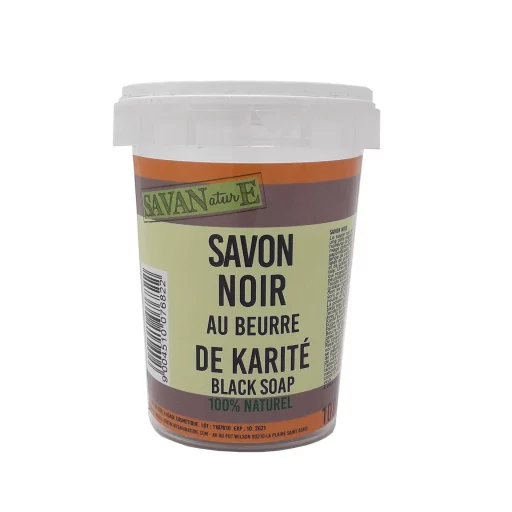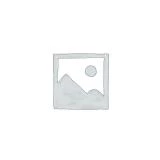Native to tropical America, the papaya tree (Carica papaya) is best known for its delicious fruit. But this palm-like tree of the cariaceae family is also used in phytotherapy for the virtues of its leaves and seeds. Their digestive, vermifuge, liver and kidney protective, anti-inflammatory and skin healing properties make them valuable health remedies. Internal use: Digestive, antihelminthic, antiparasitic: papaya (leaves and seeds) is rich in enzymes (papain, chymopapain). It facilitates digestion, calms inflammation, protects the digestive system and treats gastric and duodenal insufficiency. When infused, the leaves relieve bloating and are slightly laxative. The seeds also help to rebalance the intestinal flora and fight against digestive parasites. They help fight fungi, worms (roundworms, pinworms) and bacteria (staphylococci, salmonella); Anti-inflammatory, analgesic: papaya seeds help to calm inflammation, thanks in particular to their richness in essential fatty acids. They relieve joint pain and arthritis. Their analgesic virtues can help relieve sciatic neuralgia; Depurative and hepatic protector: papaya seed helps to depurate the liver of its toxins, prevents and helps to cure liver disorders (cirrhosis); Antioxidant: the richness of antioxidants in the leaf gives it a protective role against oxidative stress and free radicals, responsible for premature cell ageing. It is also an anti-cancer; Antiviral: the papaya seed helps to fight certain viral infections. In some tropical countries, it is used to treat typhoid fever and dengue fever; Kidney protector: papaya seed protects the kidneys and prevents kidney failure; therefore, it can be an ally for weight loss; Natural contraceptive: papaya seeds in cure can help to reduce the production of spermatozoids. This ancestral technique is used in many Asian countries. Healing, repairing, anti-inflammatory, analgesic: papaya helps to heal wounds, acne, insect bites and irritations as well as warts, boils and inflammatory phenomena such as oedema when applied locally. Internal use Herbal tea: one teaspoon of papaya leaves in a cup of hot water, leave to infuse for ten minutes, drink 3 times a day; Decoction: boil 4 teaspoons of leaves per litre of water for a few minutes, then leave to infuse off the heat for ten minutes, filter and drink 2 to 3 cups per day, after meals. A decoction can also be made with the previously ground seeds; Ground seeds: grind 5 or 6 seeds twice a day and add to a spoonful of honey or sprinkle on a dish for 1 month; Juice: crush and squeeze the leaves without the fibrous part and the stem, filter, drink two tablespoons 3 times a day; Raw : the seeds can be eaten raw, chewed well or mixed in a fruit or vegetable juice; Capsules, tablets, mother tincture, fluid extract, syrup: refer to the recommended dosage according to the product.
Ecrush the papaya leaves, apply locally to the area to be treated. In Paste: mix the papaya leaves with a dash of spring water and apply the resulting paste to the area to be treated.
The papain contained in the leaf and seed is contraindicated for pregnant and nursing women. It can also interact with certain drugs such as anticoagulants or anti-platelet drugs. The latex contained in the leaves, fruits and seeds of the papaya is very allergenic, it is not recommended for people allergic to latex as well as to certain fruits such as kiwi or avocado. In case of overdose, there is a risk of irritation of the oesophagus. Papaya is composed of several active substances, the main ones being Essential fatty acids; Enzymes (from the latex): papain, chymopapain; Flavonoids, carotenoids (lycopene, lutein, beta-carotene); Alkaloids (carpain); Glucosinolates (glucatropéoline); Pectin; Vitamins (C, A); Minerals (potassium, calcium); Amino acids. A tree that can grow up to 10 metres in height. Also known as the island fig or papaya tree, the papaya tree grows in tropical regions of the world, in Asia, Africa and America, and has a tubular, hollow trunk with greyish bark and scales. At the top of the trunk is a tuft of green, evergreen, palmate, petiolate leaves up to 80 cm long. Its greenish-white flowers appear in summer, the male flowers being larger than the females. They give way to large, orange-yellow, egg-shaped berry-like fruits that can weigh up to 5 kg. Their flesh is orange and sweet when ripe, and in the centre are black seeds with many unknown virtues. In addition to the use of the fruit in food, the young leaves, seeds and roots are used in phytotherapy. Unknown in the wild, the pawpaw is thought to be the result of a spontaneous cross between two other species in tropical America. The longevity of the germinative power of its seeds enabled it to spread rapidly throughout the world through the travels of explorers. Indigenous people already used papaya for digestive and liver disorders, intestinal parasites and skin problems. The leaves were also used to tenderise meat that was too firm.








Reviews
There are no reviews yet.